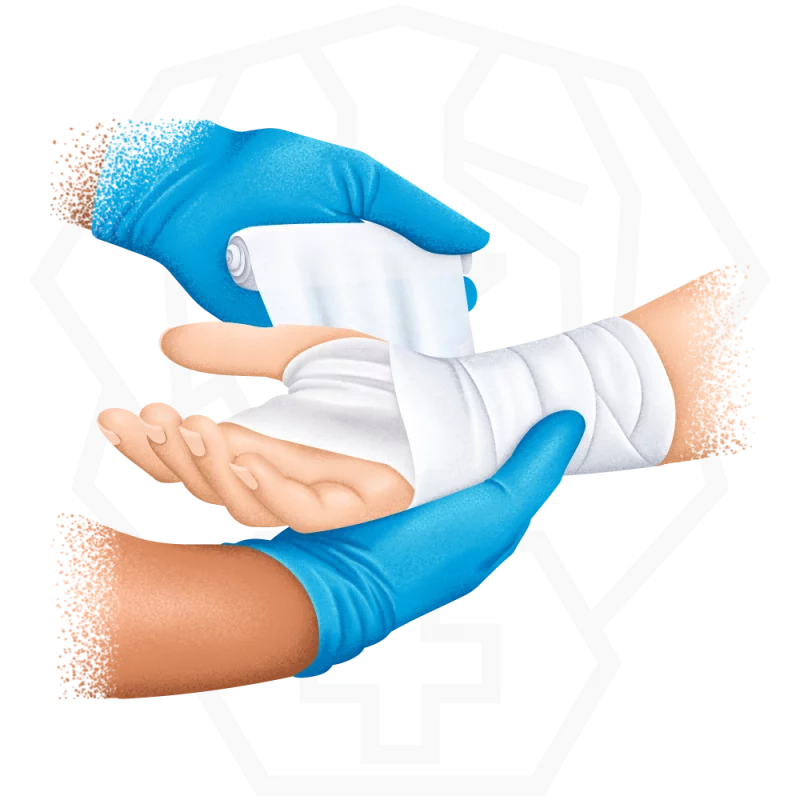October 21, 2024
Intermediate Residence
CPR and First Aid Standards
Intermediate residences (IR) play an important role in Quebec's care and social services network. They provide a safe, adapted living environment for people requiring specific support services. To ensure user safety, first aid standards apply to IRs. This article details what an intermediate residence is, the first-aid obligations, and how Académie Saint-Bernard can help meet these requirements with its “Secouriste - Grand public général (8h)” training course.
WHAT'S AN IR?
An IR is a resource designed to provide an adapted living environment for people with special needs that cannot be met in their own homes. IRs are intended for a variety of clientele types, including the elderly, people with intellectual or physical disabilities, or individuals living with mental health problems.
IRs are governed by the Act respecting health services and social services (LSSSS). They are operated by individuals, corporations or partnerships, recognized by a regional agency to provide a safe living environment and adapted support services. IRs enable users to maintain or improve their quality of life while living in a setting that is as close as possible to a family environment.
FIRST AID STANDARDS FOR INTERMEDIATE RESIDENCES
IRs are subject to strict first-aid requirements to ensure the safety and well-being of users. Here are the main requirements:
- First-aid training
All operators of IRs must guarantee that at least one person present in the living environment at all times has up-to-date training in cardiopulmonary resuscitation (CPR) and general first aid, issued by a recognized organization. This requirement ensures that, in the event of a medical emergency, there is always someone capable of providing the necessary first aid.
- Constant presence of a trained person
Regulations require the continuous presence of a trained person on site, which is crucial to guaranteeing a rapid and effective response in the event of an incident or injury. This person must be able to handle emergency situations such as cardiac arrest, injuries, or other common medical emergencies.
These first-aid standards are in place to protect IR users by ensuring that intermediate resources have competent personnel to respond quickly to critical situations.
ACADÉMIE SAINT-BERNARD'S “FIRST AID - GENERAL PUBLIC (8H)” TRAINING COURSE
To assist intermediate residences in complying with first aid standards, Académie Saint-Bernard offers a specialized training titled "First aid - General public (8h)". This training is designed to equip participants with essential first aid and CPR skills necessary for effectively responding to emergencies in a living environment such as an IR. Here's what this training covers:
- CPR Techniques
The training teaches CPR techniques for adults, children, and infants, as well as the use of an automated external defibrillator (AED).
- Emergency Care for Common Injuries
Participants learn to treat injuries such as cuts, fractures, burns, and other medical emergencies.
- Management of Medical Emergencies
The program includes skills to respond to situations such as heart attacks, strokes, choking, and severe allergic reactions.
- Accident Prevention
The training also addresses preventive measures to reduce the risks of accidents and emergencies in the living environment.
Académie Saint-Bernard's "First aid - General public (8h)" training complies with the latest first aid standards, making it an ideal solution for IRs looking to meet regulatory requirements and ensure a safe environment for their users.
WHY CHOOSE ACADÉMIE SAINT-BERNARD?
Académie Saint-Bernard is recognized for its expertise in first aid training and is committed to providing training tailored to the specific needs of intermediate residences. By choosing our "First aid - General public (8h)" training, IR operators can be confident that their staff is well-prepared to intervene in case of an emergency, thus ensuring compliance with existing standards.
The Académie also offers the flexibility to deliver training on-site, at its facilities, or in a hybrid format to accommodate the logistical constraints of IRs. The Académie's trainers are certified and experienced, ensuring quality training sessions based on evidence-based practices.
CONCLUSION
Intermediate residences play a crucial role in supporting vulnerable individuals in Quebec, providing a safe living environment tailored to their needs. First aid standards require the constant presence of trained personnel to respond to emergencies, contributing to the safety of users.
With Académie Saint-Bernard's “First aid - General public (8h)” training course, IRs can easily meet these requirements while ensuring a safer living environment for their users. This training enables IR operators to ensure their staff has the necessary skills to respond quickly and effectively to medical emergencies, thereby improving the quality of care and services provided.
Source
Ministère de la Santé et des Services sociaux. 2013. « Guide des responsabilités des agences de la santé et des services sociaux au regard des ressources intermédiaires et des ressources de type familial ». https://publications.msss.gouv.qc.ca/msss/document-000300/?&date=DESC
